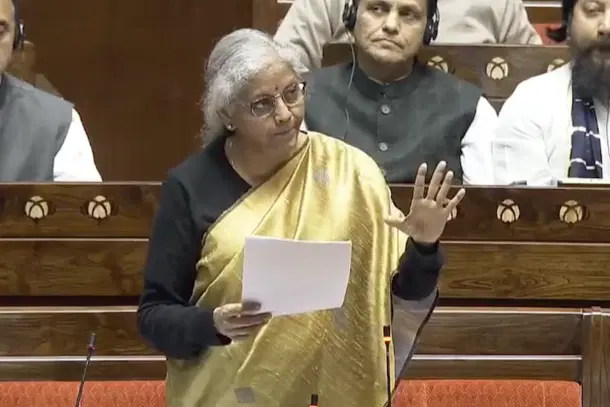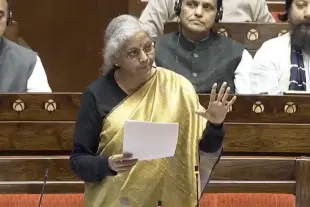News Brief
Nirmala Sitharaman Tables Revised Income Tax Bill 2025 In Lok Sabha, Accepts Most Panel Suggestions
Arzoo Yadav
Aug 11, 2025, 05:59 PM | Updated 05:59 PM IST
Save & read from anywhere!
Bookmark stories for easy access on any device or the Swarajya app.


Union Finance Minister Nirmala Sitharaman on Monday (11 August) presented the revised Income Tax (No. 2) Bill, 2025 in the Lok Sabha, replacing the Income Tax Act, 1961, reported Mint.
The government withdrew the earlier version on Friday (8 August) to avoid confusion from multiple drafts and to present an updated version incorporating “almost all of the recommendations of the Select Committee.”
The 31-member panel, chaired by BJP MP Baijayant Panda, submitted a 4,584-page report with 566 suggestions. The Bill adopts most proposals, alongside stakeholder inputs to “convey the proposed legal meaning more accurately.”
Sitharaman stated, “The Income-Tax (No. 2) Bill, 2025 seeks to consolidate and amend the law associated with income tax and will replace the current Act.” Parliamentary Affairs Minister Kiren Rijiju earlier clarified the revised Bill builds on prior work.
The new draft simplifies the archaic 1961 Act—edited over 4,000 times—by reducing sections from 819 to 536 and chapters to 23, replacing “Previous Year” and “Assessment Year” with a single “Tax Year,” and removing ambiguous provisions to cut disputes. It empowers the CBDT for digital tax administration, aligns MSME definitions with the MSME Act, and corrects drafting errors.
Key changes include:
Allowing refunds even if returns are filed late.
Reintroducing Section 80M deduction for inter-corporate dividends.
Granting advance NIL-TDS certificates to taxpayers without liabilities.
Removing additional tax on deemed rent.
Applying 30 per cent standard deduction on house property income post municipal tax deduction.
Extending home loan interest deduction to rented properties.
Extending commuted pension deduction to non-employees.
Clarifying rules for advance ruling fees, TDS on PF withdrawals, and penal powers.
The Bill aims to enhance simplicity, transparency, and technology use, ultimately reducing litigation for individuals and MSMEs.





